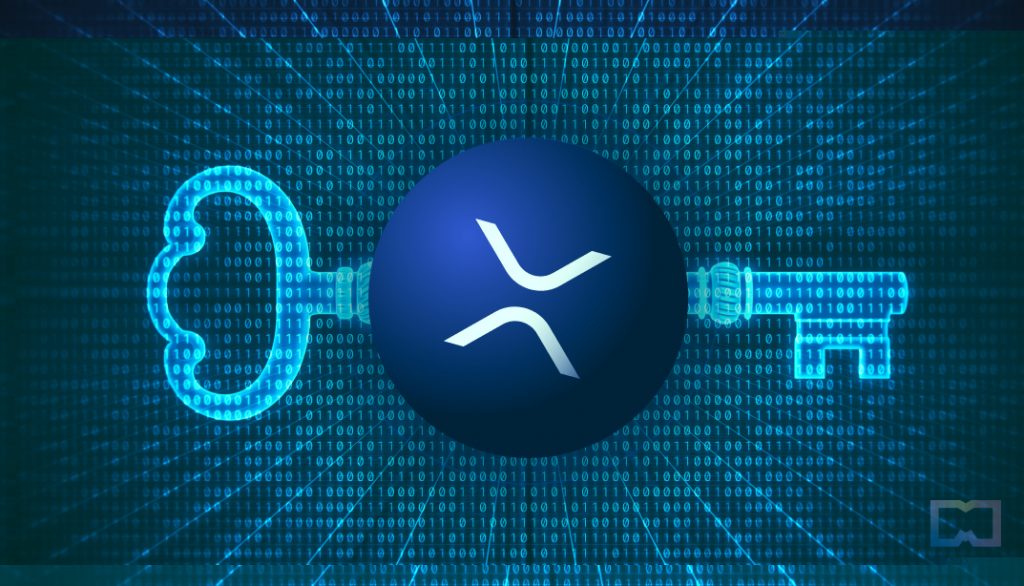Understanding XRP wallets: An essential guide for beginners on effectively storing XRP (2023)
In Brief
XRP wallets are utilized for both sending and receiving XRP, in addition to securely storing the cryptocurrency.
Among the various wallet types, hardware wallets provide the highest security, while software and web wallets offer ease of use.
For anyone looking to manage XRP, having the right wallet is crucial. The multitude of available options can confuse newcomers, especially when deciding which one best suits their requirements.

In this piece, we aim to present a summary of the top XRP wallets, helping you make an educated choice for your needs.
What is an XRP wallet?
An XRP wallet serves as your digital vault for XRP, the currency tied to the Ripple network, aiding in the seamless facilitation of transactions within the network. They enable users to send, receive, and hold cryptocurrency.
Types of wallets
Holders of XRP can access a wide range of wallets including hardware, desktop, mobile, exchange, and paper options, requiring them to select one that meets their individual demands. For beginners wanting to buy or hold a modest amount of XRP, a desktop or mobile wallet could balance security with usability. wallets If your intention is to hold a considerable amount of XRP for long-term investment or frequent trading, opting for a hardware wallet is advisable.
A hardware wallet is essentially a physical device crafted for the secure storage of cryptocurrencies. These wallets are reputed to be the most secure method available since they keep your assets stored offline on a physical apparatus. Devices like the Ledger Nano S and Trezor are popular choices among XRP users.
Hardware wallets
Desktop wallets operate as software applications you can install directly on your computer. They are considered relatively secure due to their offline functionality, minimizing vulnerability to hacks. Examples of well-known desktop wallets include Toast Wallet and Edge.
Desktop wallets
A mobile wallet is an application that you can install on your smartphone to manage your XRP conveniently. These wallets are typically secure and user-friendly, with Edge being a frequently recommended option.
Mobile wallets
Exchange wallets are those provided directly by cryptocurrency exchanges. While they offer less security due to their internet connectivity, many platforms implement additional measures like two-factor authentication to safeguard your investments. GateHub is one such exchange wallet favored for XRP.
Exchange wallets
A paper wallet entails generating a physical print of your private key. They are viewed as an extremely secure option because they remain offline and thus immune to hacking. Nonetheless, it's crucial to store your paper wallet securely since it's susceptible to loss or theft. XRP Paper Wallet is a notable example of this option.
Paper wallets
When selecting a wallet, reflecting on the security features provided is essential. Important elements to seek include two-factor authentication, multi-signature capabilities, and secure connections.
Security features
Two-factor authentication (2FA) introduces an additional security step by requiring a code sent to your mobile device along with your password, making unauthorized access more challenging for hackers who must also access your phone.
Two-factor authentication
Multi-signature support allows you to configure your wallet to need multiple approvals to complete transactions. This heightens the security as it necessitates several keys for a transaction to be authorized.
Multi-signature support
A secure connection is vital to protect your XRP from cyber threats. Prioritize wallets that utilize HTTPS or SSL for encrypting their connections, ensuring the safety of your transactions.
Secure connection
The choice of XRP wallet really hinges on your specific priorities. For those whose primary concern is security, a hardware wallet stands out as the top option. Conversely, if you value convenience more than security, a web or software wallet might resonate better.
Which XRP wallet should you use?
Regardless of the wallet you select, it's critical to store your recovery phrase in a secure location. This phrase is your safeguard in case your wallet gets lost or compromised.
For anyone investing in XRP, whether it's a modest 100 or a hefty 100,000, utilizing a Ripple cold storage option with an XRP cold wallet is highly recommended to safeguard your assets from hacking and other dangers.
Should I move XRP to the cold wallet?
An XRP cold wallet keeps your private keys stored offline, making them impervious to online breaches. These wallets can vary from hardware devices like Ledger or Trezor to paper wallets and mobile applications like Guarda Wallet.
A key advantage of cold wallets is the necessity for physical possession to access funds. This means that even if someone were to discover your private keys, they wouldn’t be able to transfer any XRP without having the actual device that contains these keys.
When selecting an XRP wallet, it's beneficial to evaluate both your personal requirements and the security features available. Hardware wallets are the gold standard for security, while software and web-based wallets prioritize ease of use.
Final thoughts
Here are the top 7 NFT newsletter services you should subscribe to right now.
Related articles:
- Check out these top 5 NFT staking projects of 2022, including their pros and cons.
- A quick overview of The Sandbox - a thriving metaverse ecosystem.
- The Sandbox Alpha Season 3 has launched, introducing exciting new features for metaverse enthusiasts.
- $154 million was spent in gas fees during the minting of Otherside lands.
- Please remember that the content provided here is not intended as legal, tax, financial, or any form of professional advice. Always invest wisely and only what you can afford to lose. If uncertain, seek independent financial guidance. For further inquiries, review the terms and conditions and the support resources from the issuer or advertiser. MetaversePost strives to deliver impartial, accurate information, but market dynamics can shift without prior notice.
Disclaimer
In line with the Trust Project guidelines Ken Gitonga has a passion for writing and specializes in creating articles on crypto, including SEO strategies, technical analysis, news writing, and drafting white papers. With over three years in the fields of content writing and marketing, he's dedicated to enhancing businesses' online visibility and traffic.







